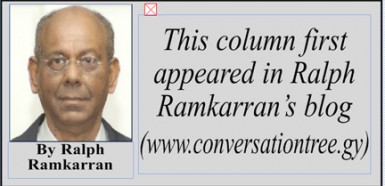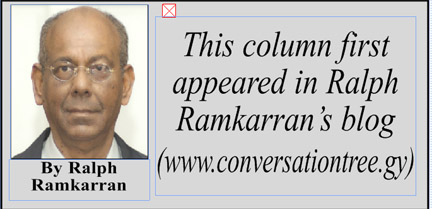 The AFC declared on Monday last that it would be contesting the November 12 local government elections on its own. It could be that in the discussions between the parties the AFC put forward for the local government elections the same formula agreed in the Cummingsburg Accord, signed by the parties on February 14, 2015. Under that formula, the AFC got 40 percent of the seats in the National Assembly and of ministries. Far higher than its showing in the two previous elections, this percentage was necessary for APNU to entice the AFC, because a coalition was necessary to defeat the PPP. The apportionment was retained for the last local government elections but it is clear that APNU has now likely proposed a smaller proportion for the AFC, which the latter has clearly refused to accept.
The AFC declared on Monday last that it would be contesting the November 12 local government elections on its own. It could be that in the discussions between the parties the AFC put forward for the local government elections the same formula agreed in the Cummingsburg Accord, signed by the parties on February 14, 2015. Under that formula, the AFC got 40 percent of the seats in the National Assembly and of ministries. Far higher than its showing in the two previous elections, this percentage was necessary for APNU to entice the AFC, because a coalition was necessary to defeat the PPP. The apportionment was retained for the last local government elections but it is clear that APNU has now likely proposed a smaller proportion for the AFC, which the latter has clearly refused to accept.
The failure to agree now hints at a likely similar failure in 2020 as APNU exercises dominance. Whether the coalition survives beyond 2020 or not, Minister Khemraj Ramjattan’s prediction that the AFC would be “dead meat” if it coalesces with APNU may still be realised. But both parties tried to put a brave face on the disagreement. The AFC’s statement said soothingly that the “…decision…does not, in any way, change the AFC’s position on coalition politics at the national level.” Mr. Trotman, displaying relief, said “the AFC was not rejected by APNU.” Reflecting these sentiments, President Granger said that both the AFC and APNU remain committed to coalition politics. But APNU has made a serious mistake in seeking to marginalise the AFC. It was the AFC that helped the coalition to clinch victory in 2015. If it demonstrates continuing resilience, it will be needed in 2020.

